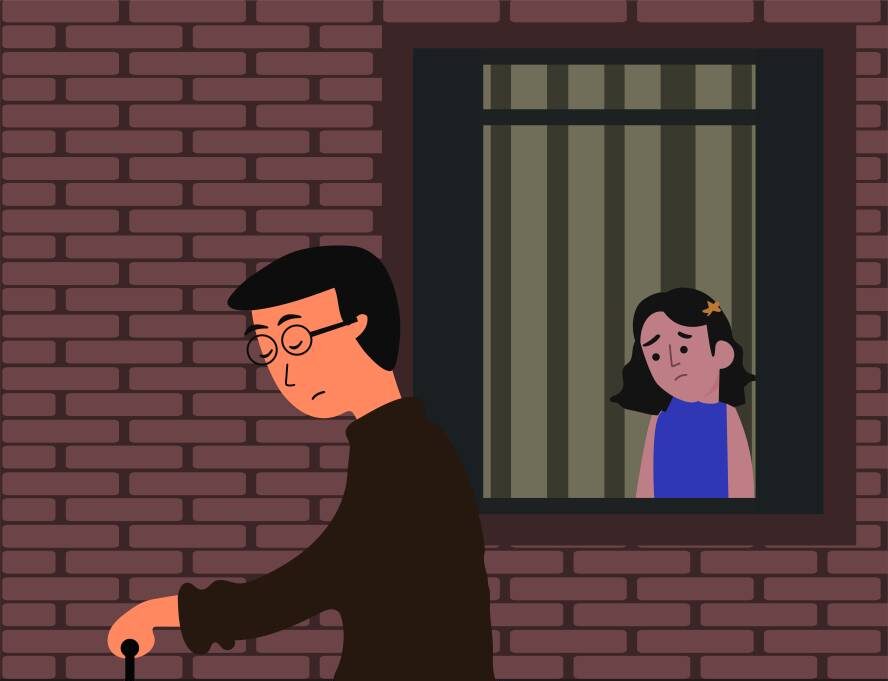How fathers’ affairs shape their daughters’ lives

In my previous article (“When daddy has another girl,” Inquirer Lifestyle, Jan. 22, 2025), daughters shared how they found love despite having unfaithful fathers as poor role models. But for some women, the pain of betrayal is not so easily overcome. Their stories reveal that silence perpetuates generational trauma, normalizes infidelity, and leaves scars that linger into adulthood.
When Lena (not her real name) was 10 years old, her father didn’t come home one night. “I remember my mom and I waiting for him in the morning. When he arrived, he was annoyed, saying, ‘Bakit ba kayo nagtatanong?’ Shortly after, my mom told me and my siblings that he had a kabit,” she recalled.
Lena’s mother sued her father for adultery but lost due to limited resources. Her father showed no remorse, no effort to reconcile, and no intention of ending the affair. When Lena once asked him why, his only response was, “One day you’ll fall in love and understand.”
But betrayal, lies, and secrecy are not love. True love does not bloom by shattering a spouse’s trust, wrecking a family, and leaving emotional devastation in its wake. The scars of her father’s actions became apparent in Lena’s own relationships years later.
Lena eventually fell in love but broke off the relationship because her boyfriend, though separated, wasn’t annulled. She was also close to his ex’s family. “I told my dad about my choice, and he said nothing,” she said.
For three years after his infidelity was exposed, Lena’s father continued to live with their family until her mother reached a breaking point and kicked him out. “She threw out all his stuff and locked him out,” Lena said.
Her mother became consumed by anger, and the once-close bond between Lena and her siblings dissolved into frequent, violent fights. Lena eventually left home to live with her then-boyfriend.
Fear of commitment
“I didn’t want to marry him until divorce was legal in the Philippines. I was so traumatized,” Lena admitted.
Though she eventually left him, she reflects on how her fear of commitment may have cost her a chance at happiness. “In hindsight, he was a great guy—pure heart, no guile. He married his next girlfriend and is now a hands-on dad. It sucks that I hurt him, but his life is good now.”
Now 48, Lena is a tutor and has remained single, with no children. “After another boyfriend cheated on me, I didn’t get into any serious relationship for 17 years. I’m currently getting over someone who I suspect cheated on me. I have trust issues now,” she admitted.
Lena lives with her mother, though their relationship is civil and detached. “Like roommates,” she explained. “I stay away from her as much as possible because she has traits I dislike. Maybe my dad had a hard time living with her, too. Or maybe she became like this because of what happened.”
Her father now lives abroad but visits thrice a year. “I prefer his company, but maybe that’s because it’s in small doses,” said Lena. She maintains some boundaries. “Whenever he brings up the kabit, I disengage and don’t reply. I never accepted her, unlike my siblings.”
Lena believes her family’s healing might have been possible if her mother had chosen to migrate to Australia after the infidelity. “I think we would’ve healed better if we had that space of no contact and no new information,” she said. “But I think my mom was holding on to hope that my dad would come back.”
Lingering wounds
Niki (not her real name) also lived through the fallout of her father’s extramarital relationship. “My dad left the house when we found out, perhaps out of shame or maybe because it was too difficult for him to handle,” she said.
After a few months, he returned to try to save the marriage, but the effort didn’t last. “Eventually, he left to live on his own. Any details after that, I’m not aware of.”
Her parents tried couples therapy and attended retreats, but Niki said it was hard to pretend everything was fine when it wasn’t.
“Did it win everyone’s trust back? I can only speak for myself. I witnessed too many arguments and immature behavior from both of them. It felt like they were out to hurt each other; one tactic after another. While there was an effort to make amends, the negative emotions in the house were just too overwhelming.”
Before the affair, Niki’s family seemed happy. “We had routines, like eating dinner at a certain time or watching TV on a particular day. It felt normal,” she recalled.
But after the affair, her world turned upside down. “I was too young to go through a betrayal from people I thought would never hurt me. This also goes for my mom, the aggrieved party. I started to see her in a different light.”
The experience left deep scars. Niki now finds it difficult to trust men. “When I like someone, there’s a constant internal battle between wanting to be with them and pushing them away. It’s not easy.” She remains single in her 40s and works as a teacher.
Niki’s relationship with her mother fluctuates between anger and protectiveness. “How could she have allowed me to see that side of her?” she wondered. At the same time, she feels responsible for her mother’s well-being. “Even when I’m not around, I call her every day. She’s the first person who enters my mind when I pray for my family.”
As for her father, Niki said, “In my 20s and early 30s, I spent time with him trying to repair our relationship. But now, I feel some distance. I suppose that feeling of complete trust will never return.”
Niki’s parents taught her an important, painful lesson: Parents can hurt their children deeply, even unintentionally. “It was hardest to accept that they allowed me to see and hear things no child should witness,” she said.
Breaking the cycle
Children need more than just a provider; they need someone to look up to. They notice how their father treats their mother and whether he keeps his promises. Unfaithful fathers show their children that loyalty and respect are optional. They must ask themselves: Is this the example they want to set? Is this how they want to be remembered?
The stories of Lena and Niki illustrate the generational impact of infidelity. Silence deepens wounds; healing begins with acknowledgment, communication, and accountability. Fathers who commit to being role models can ensure a healthier emotional legacy for their children.
















